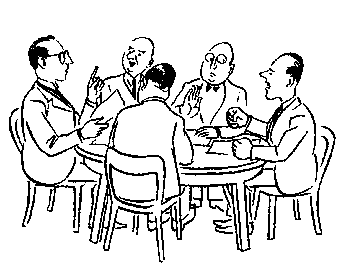Forex regulators
The popularization of the Forex exchange among the population of Russia, as well as the CIS countries, has created the need to regulate this area of activity.
The fact is that trading on the currency exchange involves the use of an intermediary, namely a broker or DC which will bring your transactions to the interbank market for a certain fee in the form of a commission.
Since many CIS countries do not have regulatory bodies for this type of activity, brokers began to abuse their powers.
The fact is that, according to statistics, almost 90 percent of beginners lose their first deposit.
Based on this, many companies began to imitate brokerage work, slipping various incorrect quotes, delays, and artificially causing the loss of a trader's deposit, leaving it in their account, while the transactions are not sent to the market.
Popular Forex regulators in Russia
When opening an account with a particular broker, in addition to the trading conditions, you should pay attention to the regulators that have certified the company. It's important to understand that not all regulators can guarantee your protection, so it's important to familiarize yourself with each one in detail to ensure you choose a truly reputable company.
So, briefly about the main points.
1 CRFR. Traders first learned about this regulator in early 2012, when the first certificate emblems were displayed by a number of brokers. The CRFR is a non-profit organization created by a number of professionals unaffiliated with brokerage firms.

The company conducts quarterly audits of certified companies, and a welcome feature of this fund is its compensation fund. To obtain this company's certificate, the broker pays a fee and provides a wide range of data.
If the CRFR issues a certificate to a company, a trader can receive compensation in the event of a dispute with a broker if the company refuses to fulfill its obligations. However, it's important to note that the statute of limitations for filing a complaint should not exceed one month, otherwise the company will not consider your complaint.
2 KROUFR. This organization is a non-profit and was founded in 2003 by a number of leading brokerage companies and DC. This company is the first regulator to undertake regulation of the forex market, and its founders are white-hat brokers seeking transparency in the services market.

The main goal is to protect traders' rights and resolve disputes between market participants. This company has specific requirements for certification and requires a membership fee, which becomes part of the compensation fund.
Brokers typically comply with these recommendations from the KROUFR Commission, otherwise they will be stripped of their certification by the reputable regulator and blacklisted, which can be found directly on the company's website.
3 The Financial CommissionThis regulator was founded in 2013, and its participants can become brokers from any jurisdiction. The company's goal is to resolve disputes out of court between certified participants and traders trading with the broker. To become certified, the company is required to pay an entry fee and monthly membership fees.
Membership fees form the basis of the compensation fund. It's worth noting that the company allocates no more than $10,000 per trader, and complaints are processed within 21 days.
In conclusion, I'd like to point out that in addition to the regulators mentioned above, there are other lesser-known ones. It's also worth noting that there are pseudo-regulators, such as GURS, which were created by little-known companies and resolve disputes solely in their favor.

